Unpacking the Future: 30 Intricate Artificial Intelligence (AI) Facts
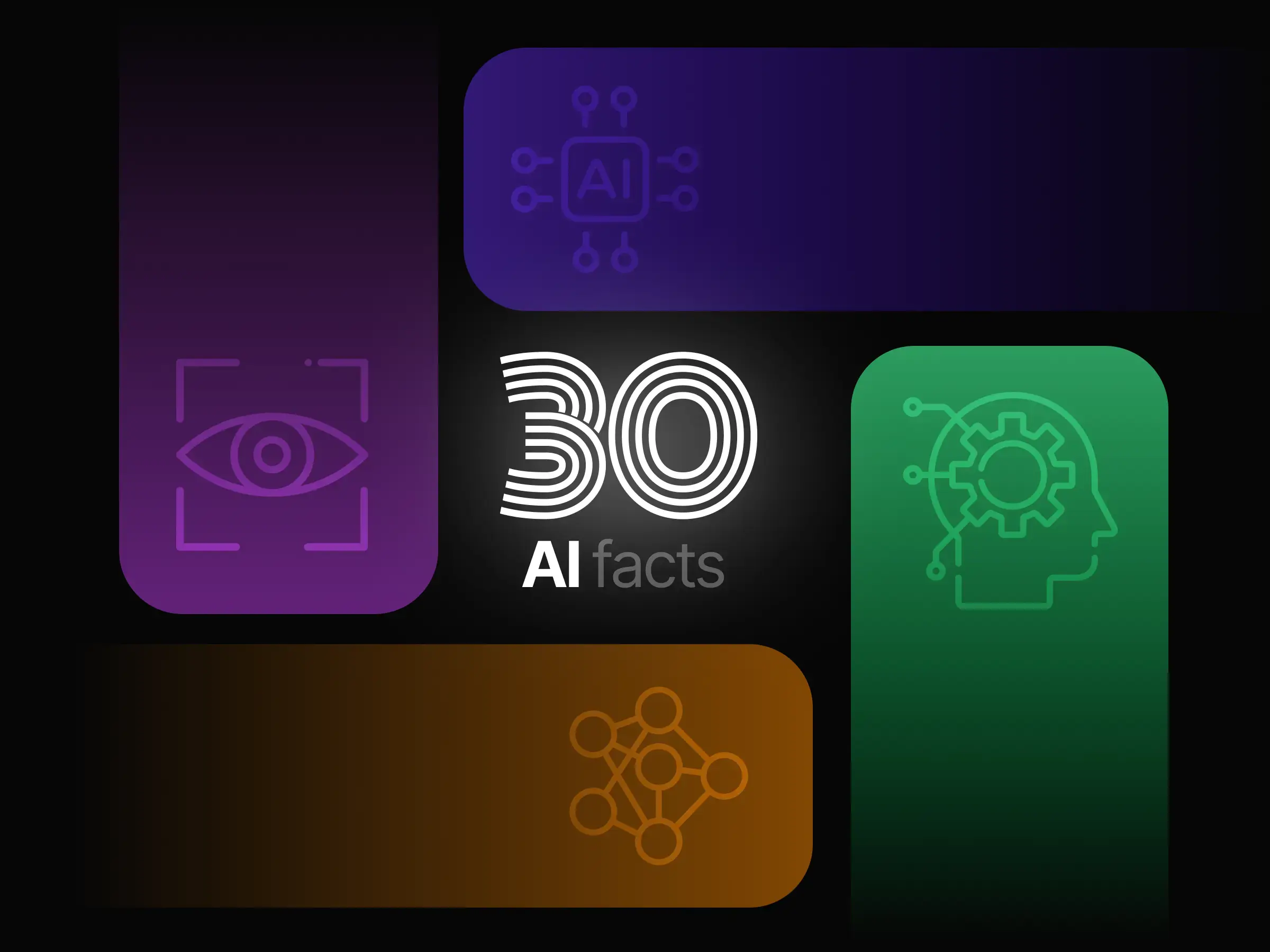
Artificial Intelligence (AI) is not just a technological marvel; it’s a transformative force reshaping industries, creating new opportunities, and defining the future. The tremendous impact of AI across different facets of society and the economy is often summed up in numbers, but what do these figures mean? In this article, we delve into 30 Artificial Intelligence facts that showcase the revolutionary nature of AI, dissecting each to reveal its underlying impact.
30. A Market Beyond Billions
The global AI market stands at a staggering $454.12 Billion. This figure isn’t just impressive; it indicates the value businesses, governments, and institutions place on AI technology. A financial commitment signals widespread confidence in AI’s transformative potential across various sectors, from healthcare to transportation.
29. Skyrocketing Potential
A 38.1% Compound Annual Growth Rate (CAGR) doesn’t merely signify Growth; it represents an exponential rise in technological innovation and investment. This rate underscores the belief that AI will not merely adapt to changing times but will redefine them, creating opportunities and challenges that we have yet to comprehend fully.
28. Year-over-Year Explosion
A 120% year-over-year growth rate encapsulates a thriving, fast-paced development landscape where AI technologies evolve quicker than ever. This rapid expansion isn’t just technological; it echoes the increasingly diverse applications that AI finds itself in, from complex data analytics to consumer-facing applications like chatbots.
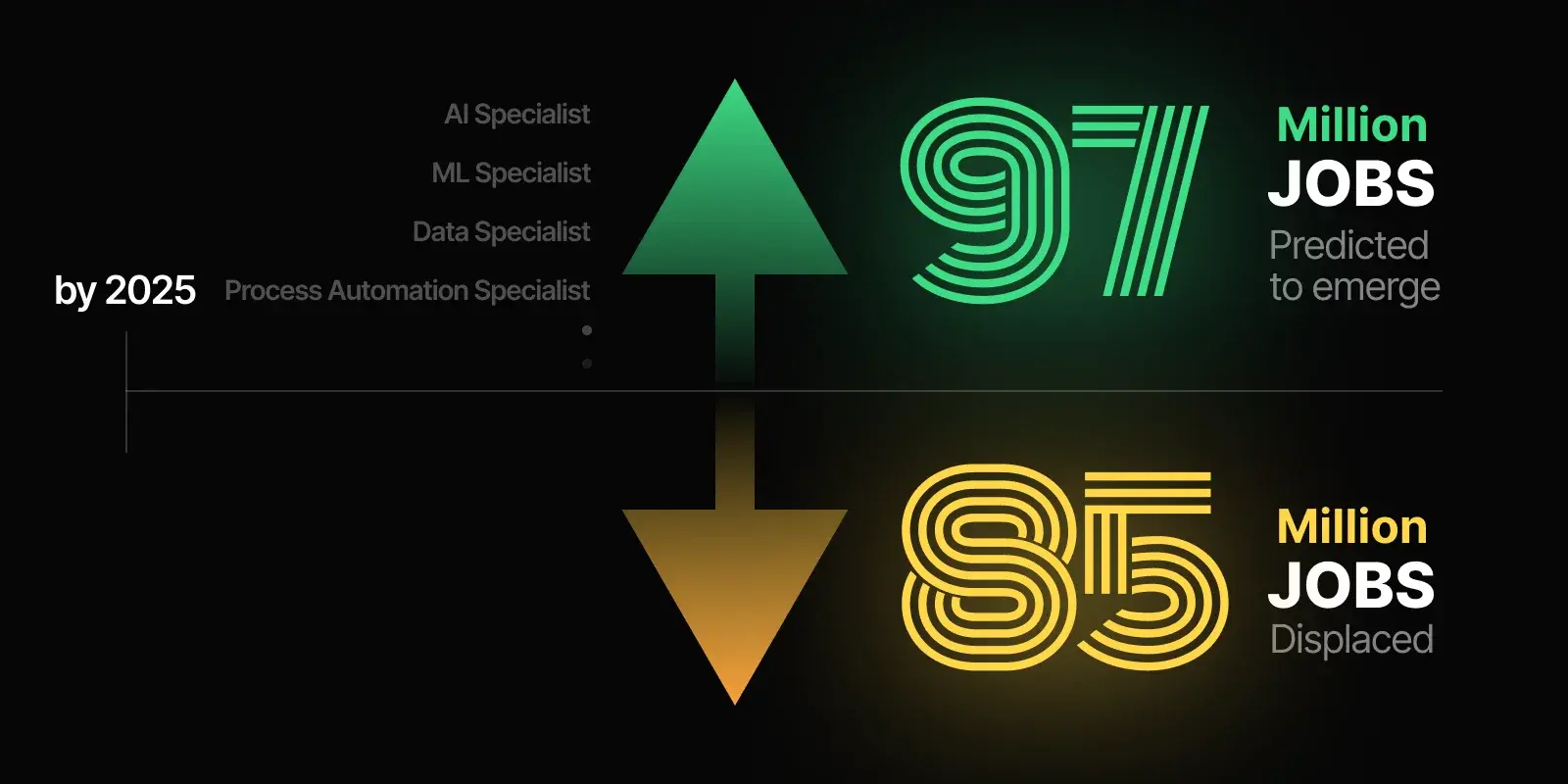
27. Occupational Revolution
When we talk about 97 million people being employed in AI by 2025, we talk about a significant shift in the global job market. It’s not merely a migration from one sector to another; it’s the creation of entirely new employment categories. This evolution reiterates the necessity for a skilled workforce that can adapt to an AI-driven ecosystem.
26. The Epicenter of Innovation
The projection of the U.S. AI market reaching $299.54 billion by 2026 suggests that the country will continue to be a linchpin in global AI development. This isn’t just about economic prowess but also about pioneering research, policy-making, and ethical considerations, which will set precedents for the rest of the world.
25. Trillions in the Making
When we say, AI could contribute $15.7 trillion to global GDP by 2030, we’re talking about a seismic economic shift. This figure underscores not just the monetary value of AI but its potential to drive productivity, streamline supply chains, and create new business models, elevating entire industries and economies in the process.
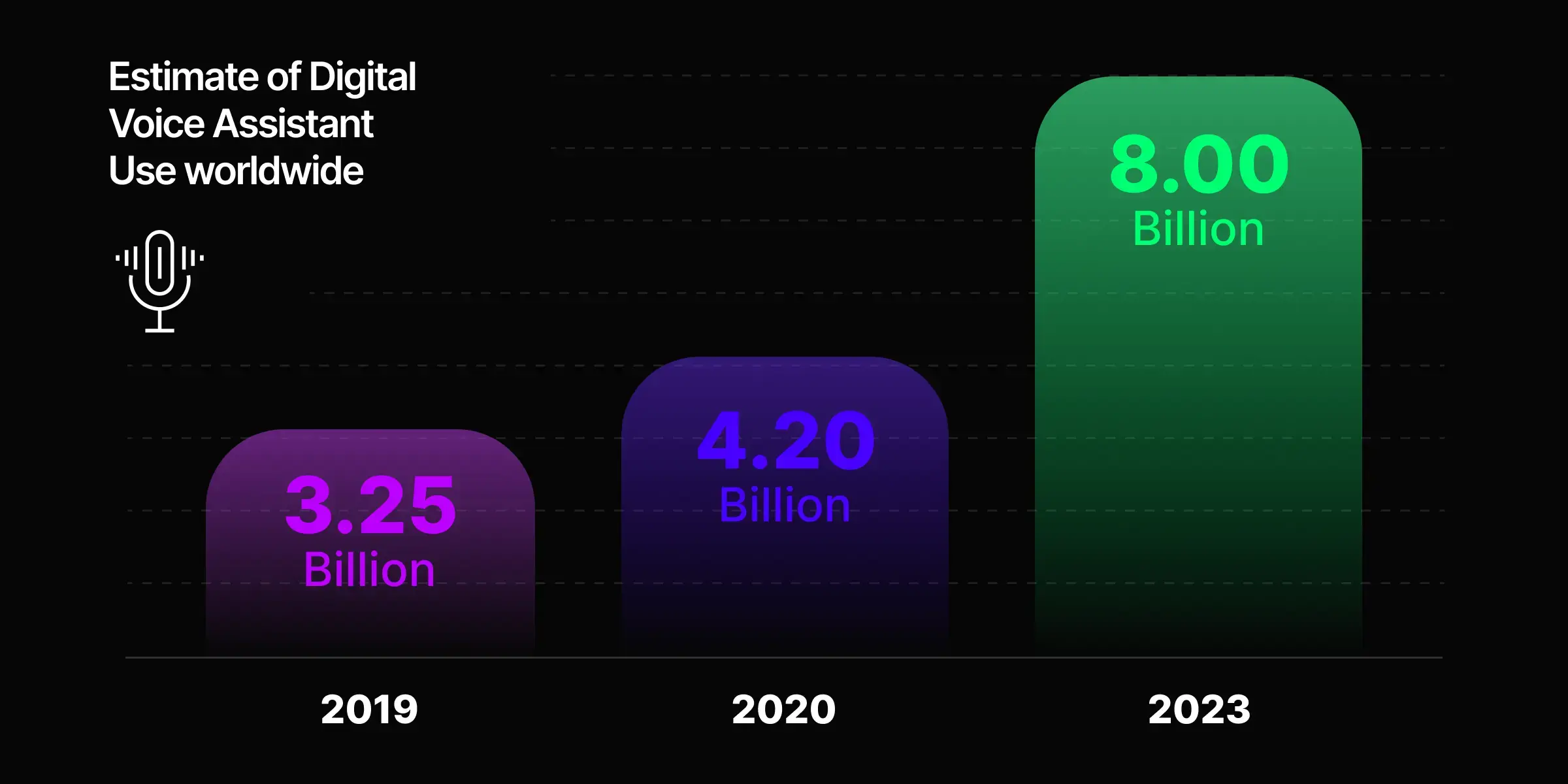
24. The Sound of Tomorrow
Predicting 8 billion AI-powered voice assistants by 2023 isn’t just about numbers but a shift in human-machine interaction. These voice assistants are not merely tools but catalysts that will redefine how we control our devices, search for information, and organize our lives.
23. The Startup Surge
The sixfold Growth in AI startup investments since 2006 exemplifies the financial muscle backing AI and the continual innovation it promises. Startups often serve as the testing ground for cutting-edge concepts, and this investment surge will likely yield revolutionary technologies we haven’t yet imagined.
22. Industry Impact in Focus
A projected 13x increase in industry value over the next seven years suggests more than just profitability. It clearly signals that AI is moving from an experimental technology to a fundamental business pillar across the healthcare, automotive, and retail sectors.
21. Trillions on the Horizon
The global AI market hitting $1,811.8 billion by 2030 means more than massive revenue. It reflects a future where AI is pervasive and integrated into every aspect of our lives—from how we work and communicate to how we travel and seek medical care.

20. Survival of the Smartest
When 83% of global organizations declare AI a top priority, it becomes more than a trend; it’s a mandate for survival and Growth. This wide-ranging consensus signifies that businesses view AI as a tool and a strategic asset that can offer a competitive edge in a rapidly evolving landscape.
19. The Gold Standard
The GlobeNewsWire report expects the global AI market to reach $266.92 billion by 2026, further emphasizing the massive financial investment in AI technologies. GlobeNewsWire’s predictions are often seen as industry standards, suggesting that this isn’t mere speculation but a carefully calculated insight into AI’s sustained Growth and inevitable mainstream integration.

18. Netflix’s Smart Savings
Another shocking fact in our Artificial Intelligence facts list, Netflix has saved over $1 billion annually using its machine-learning-based recommendation engine. Beyond the staggering dollar amount saved, this exemplifies the capacity of AI to understand consumer behaviour and preferences at a granular level. It’s a testament to AI’s ability to redefine business models and create value through advanced data analytics.
17. The Productivity Paradigm
AI has improved the productivity of 61% of employees, not merely by automating repetitive tasks but by allowing employees to focus on creative and strategic responsibilities. This statistic reflects AI’s positive disruptive force on workplaces, transforming them into more efficient and intellectually stimulating environments.
16. The Efficiency Advantage
When 54% of organizations report cost-effectiveness due to AI, it’s more than saving money. It acknowledges AI’s efficiency and value-add to operational processes, from reducing wastage to improving supply chain logistics, becoming a cornerstone of sustainable business models.
15. Global Tipping Point
35% of companies worldwide are already leveraging AI, showcasing that we have moved past the early adoption stage. This Artificial Intelligence fact marks a significant tipping point, indicating that companies not investing in AI will likely be at a competitive disadvantage.
14. Future Plans
The fact that 42% of businesses plan to adopt AI soon underlines the growing realization that AI is not an optional luxury but a necessity for future competitiveness. These businesses are not merely trend followers; they are seeking to adapt to an ecosystem that is becoming increasingly AI-centric.
13. Retail Renaissance
More than 80% of retail and consumer executives will use AI automation by 2025. This isn’t just an operational decision but a strategic move to enhance customer experiences, optimize inventory management, and offer personalized marketing, fundamentally altering the retail landscape.
12. The Healthcare Revolution
38% of medical providers using computers for treatments showcase AI’s growing importance in healthcare. From diagnostics to personalized treatment plans, AI sets the stage for a healthcare revolution that could greatly improve patient outcomes and operational efficiencies.

11. The Rise of ChatGPT
The rapid adoption of ChatGPT, with 1 million users within just five days of its launch, signifies the public’s hunger for AI-driven products and the scalability and applicability of such technologies. It is a benchmark for AI’s potential to go viral and make an immediate impact.
10. The Self-Driving Vehicles
When we anticipate that one in ten vehicles will be self-driving by 2030, we’re looking beyond mere transportation. We’re discussing a seismic shift in understanding mobility, safety, and urban planning. Autonomous vehicles could potentially revolutionize everything from traffic control to environmental sustainability.
9. A Booming Software Revenue
With global revenue from AI software exceeding $50 billion, we’re witnessing the monetization of machine intelligence at an unprecedented scale. This isn’t simply about profit; it’s about the myriad ways AI software finds applications—from data analytics and process automation to natural language processing.

8. Google’s AI Mastery
An 89% accuracy rate for Google’s machine learning program isn’t just a technical achievement; it’s a significant milestone in AI’s ability to understand, process, and act upon data with human-like precision. This level of accuracy offers incredible potential for applications in medicine, law, and more.
7. The C-Suite AI Adoption
The fact that 20% of C-suite executives already use machine learning reveals AI’s growing influence on strategic decision-making. This isn’t just about leveraging technology for operational gains but incorporating AI into corporate strategy and governance.
6. The Voice Assistant Mainstream
When 97% of mobile users already use voice assistants powered by AI, we observe a behavioural shift. Voice assistants are becoming an integral part of daily life, altering how we search, shop, and interact with technology on a fundamental level.
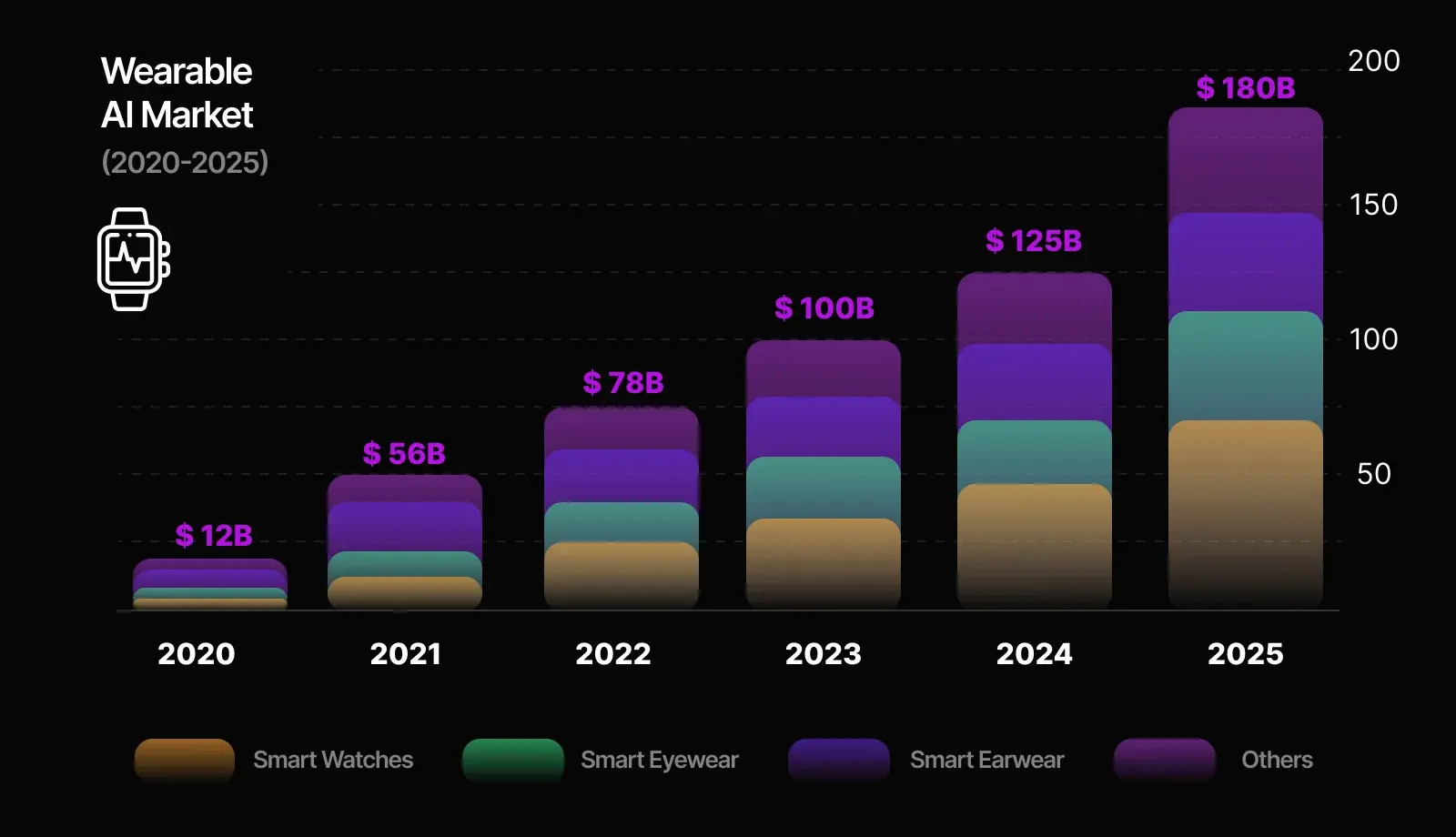
5. Fashion Meets Function
A projected market size of $180 billion for wearable AI by 2025 suggests a future where technology is more intimately integrated into our lives than ever before. This goes beyond fitness trackers to encompass various health, lifestyle, and even AI-driven fashion applications.
4. CEO’s Testament
When 17 out of 20 CEOs claim AI will be mainstream technology in their companies, they acknowledge its importance and prepare for an AI-driven future. This reflects a top-down commitment to adopt AI and integrate it into the organizational ethos.
3. The AI Conversion Funnel
A 50% increase in leads generated through AI algorithms is not just a marketing boon but an indication of AI’s potential to understand consumer behaviour better than any other tool. This transformative capacity will redefine marketing strategies and customer engagement models.
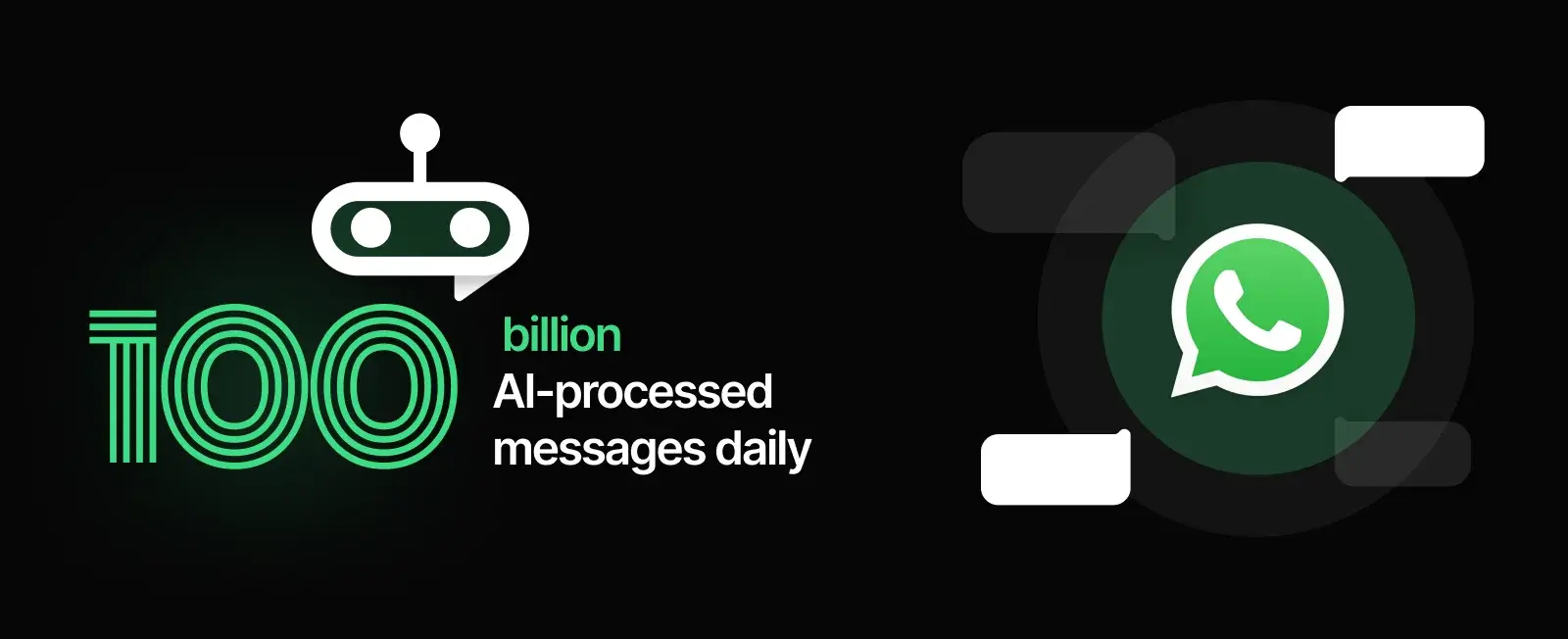
2. The Communication Shift
WhatsApp processes over 100 billion AI-processed messages daily, illustrating not just the scale but the embeddedness of AI in our communications. This mass-scale data processing has implications for everything from social interactions to security and privacy.
1. Oxford’s Technological Lips
Lastly, the top on our Artificial Intelligence facts list, Machine Learning enabling Oxford University’s AI system to read lips with a 93% accuracy is more than an impressive statistic. It points towards a future where AI could assist in fields as diverse as human-computer interaction, accessibility, and even national security.
In closing, each of these 30 Artificial Intelligence (AI) facts isn’t just a statistic; it’s a window into a future shaped by Artificial Intelligence’s immense and transformative power. From economics and employment to healthcare and personal living, AI is not just changing the game’s rules—it’s creating an entirely new playing field. The future isn’t just coming; it’s already here. If you’re excited about the infinite possibilities that AI brings to the table—then it’s time to make your mark in this rapidly evolving landscape.
Markovate specializes in cutting-edge AI development, offering bespoke solutions that drive innovation and competitive advantage. Our expertise aligns with your organizational objectives to foster growth, operational excellence, and market leadership.
Top Sectors Employing AI to Fasten Growth
1. Retail – Amazon’s Personalized Shopping Experience:
Challenge: Amazon sought to enhance the shopping experience by offering personalized recommendations to its vast customer base.
Solution: They implemented AI-driven algorithms that analyze customer purchase history, search patterns, and preferences.
Benefits: This AI integration led to a significant increase in customer engagement and sales, with reports indicating that 35% of Amazon’s revenue is generated through its recommendation engine.
2. Healthcare – DeepMind’s Medical Breakthroughs:
Challenge: DeepMind, a subsidiary of Alphabet Inc., aimed to improve healthcare outcomes through AI in areas like disease detection.
Solution: They developed an AI system capable of detecting over 50 eye diseases with 94% accuracy, using deep learning to analyze retinal scans.
Benefits: This AI implementation offers a faster, more accurate diagnosis, potentially saving sight for millions and reducing the burden on healthcare systems.
3. Finance – JPMorgan Chase’s COIN (Contract Intelligence) Platform:
Challenge: JPMorgan Chase needed to manage the overwhelming task of reviewing legal documents and extracting important data.
Solution: They developed COIN, an AI program that uses natural language processing to interpret commercial loan agreements.
Benefits: COIN has drastically reduced the hours of human work needed for document review, with the added advantages of minimizing errors and increasing efficiency.
4. Automotive – Tesla’s Autopilot and Self-Driving Cars:
Challenge: Tesla aimed to revolutionize the driving experience by introducing reliable autonomous driving features.
Solution: Tesla cars are equipped with AI-driven autopilot systems, using data from sensors and cameras to navigate and make decisions.
Benefits: This has positioned Tesla as a leader in self-driving technology, enhancing vehicle safety and paving the way for future advancements in autonomous transportation.
5. Manufacturing – Siemens’ AI-Powered Factory:
Challenge: Siemens faced the challenge of optimizing its manufacturing processes for greater efficiency and flexibility.
Solution: They implemented AI algorithms in their Amberg Electronics Plant to monitor and analyze the production process, predicting equipment failures before they occur.
Benefits: The result was a significant increase in production efficiency, reduction in downtime, and enhanced product quality.
6. Agriculture – John Deere’s AI in Farming Equipment:
Challenge: John Deere sought to enhance agricultural productivity and assist farmers in making better-informed decisions.
Solution: They integrated AI into their farming equipment, enabling features like autonomous driving, crop health monitoring, and predictive maintenance.
Benefits: This AI adoption has led to increased crop yields, optimized farming practices, and reduced environmental impact.
7. Hospitality – Hilton’s AI-Powered Concierge, Connie:
Challenge: Hilton wanted to enhance guest experience by providing personalized assistance and recommendations.
Solution: They introduced Connie, an AI-powered concierge that uses natural language processing and machine learning to answer guest queries, provide recommendations, and learn from each interaction.
Benefits: Connie has improved customer service, providing guests with instant, personalized information, and allowing staff to focus on other service aspects.
8. Telecommunications – Verizon’s Virtual Customer Assistant:
Challenge: Verizon aimed to improve customer service efficiency and reduce wait times.
Solution: They deployed an AI-powered virtual assistant that handles customer queries, troubleshoots issues, and offers quick solutions through natural language understanding.
Benefits: This led to a significant decrease in customer service call volumes and improved customer satisfaction through timely and accurate responses.
9. Entertainment – Spotify’s Music Recommendation Engine:
Challenge: Spotify sought to provide personalized music recommendations to its users, enhancing user engagement.
Solution: They implemented a sophisticated AI algorithm that analyzes listening habits, user preferences, and similar user profiles to recommend songs and playlists.
Benefits: This AI integration has been central to Spotify’s success, driving user engagement and retention by offering a highly personalized listening experience.
10. E-Commerce – Alibaba’s AI for Logistics and Sales:
Challenge: Alibaba needed to optimize its massive e-commerce logistics and improve sales conversions.
Solution: They utilized AI to analyze consumer behavior, predict sales trends, and optimize logistics, including warehouse management and delivery routes.
Benefits: This resulted in increased sales efficiency, reduced logistical costs, and a more streamlined shopping experience for customers.
11. Banking – Bank of America’s AI Assistant, Erica:
Challenge: Bank of America aimed to provide its customers with an easier way to manage their finances.
Solution: They launched Erica, an AI-driven virtual assistant that helps users check balances, make payments, and provide financial advice.
Benefits: Erica has significantly improved customer engagement and banking convenience, handling millions of client interactions with high efficiency.
12. Real Estate – Zillow’s Zestimate Tool:
Challenge: Zillow wanted to provide accurate, real-time property valuations to streamline the home buying and selling process.
Solution: They developed Zestimate, an AI algorithm that uses data from various sources to estimate home values.
Benefits: This tool has become a valuable asset for buyers and sellers in making informed real estate decisions, enhancing Zillow’s position as a leading real estate platform.
